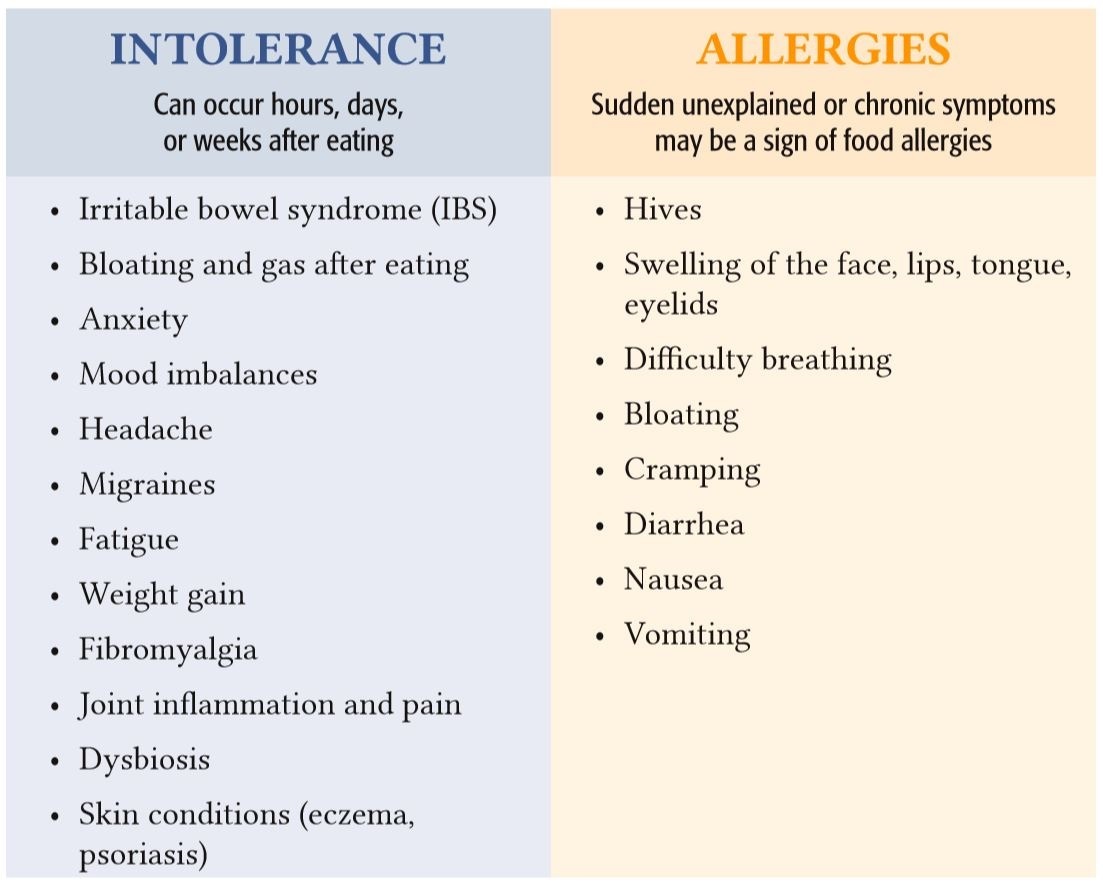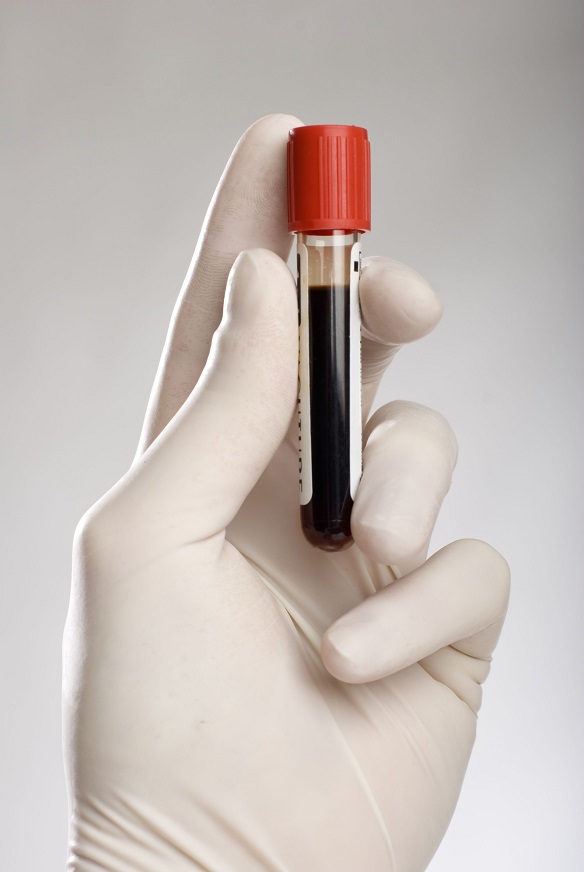What is a Food Intolerance?
“Let your food be your medicine and your medicine be your food.”
—Hippocrates, the father of medicine.
Food—Your Foundation of Health
Nutrients from food (carbohydrates, fats, proteins, vitamins, minerals, enzymes, fibre, and water) are building blocks required for repair of worn-out and damaged cells in the body. Repair and replacement is always going on inside us, which is essential for maintaining health and preventing disease.
If what you ate is the source of unpleasant symptoms, it is a sign something is not quite right. When you are experiencing vague symptoms without fever or another diagnosis, it is worth exploring undiagnosed food sensitivities.
Common foods and food additives can trigger symptoms which sometimes look like other illnesses—and it can be confusing. When the symptoms affect your life to the point that daily activities become restricted or limited, it is a good idea to seek help from a medical professional such as a naturopathic doctor. If left untreated, symptoms can lead to more serious health consequences such as malnutrition, fatigue, yeast and parasite overgrowth, or SIBO, which can cause further health issues.

Common Symptoms Associated with Food Intolerance
· Feeling heavy and bloated
· Abdominal pain
· Phlegmy cough (need to frequently clear your throat), runny nose, and itchy eyes or throat after eating
· Increased heart rate or a hot-flushed feeling—signs that your sympathetic (fight-or- flight) nervous system is having a response
· Sleep disturbances
· Dark circles under eyes; puffy, swollen eyes, face, or lips
· Joint pain
· Headaches
· Diarrhea, constipation
· Inflammation anywhere in the body
· Feeling “flu-like”
Possible Reasons for a Food Intolerance Reaction
1. Quantity: “The poison is in the dose.” It is not the right food in the right amount for you at this time.
2. Timing: “Timing is everything.” It is not the right time to eat.
3. Combination: It is not the right combination (eating a heavy fatty meal with fruit).
4. Food: It is not the right food right now.
5. Illness: You may have a digestive condition (IBD, Crohn’s disease, ulcerative colitis, infectious enteritis, etc.) which needs more investigation and treatment.
6. Stress can be held for many in their “guts” for this group of people. Many symptoms related to IBS can be successfully addressed by treating stress.
How Long Does It Take to React to a Food?
Food reaction timing varies depending on the food, your exposure level, and your sensitivity level.
Reactions start within seconds or weeks after consuming a particular food, and can last seconds or weeks after exposure. Naturopaths will generally recommend you keep a food journal to track your responses, as well as test for sensitivities, allergies, parasites, and small intestinal bacterial overgrowth (SIBO).
What Is the Difference Between Allergy and Intolerance?
Food Intolerance Is not the Same as Food Allergy
Allergic reactions involve an immune protein called IgE antibodies, while intolerances involve IgG antibodies. Whether you have an intolerance or allergy is difficult to judge by symptoms alone.

What Can You Do About It: Find the Facts
1. Get Tested
If you experience any of the symptoms above, consider food testing to find out whether it is an intolerance or an  allergy. Once you have a proper diagnosis, you can take action to reduce symptoms.
allergy. Once you have a proper diagnosis, you can take action to reduce symptoms.
A simple blood test is all that is required to get tested.
2. Track Your Symptoms
After completing your blood test, record your symptoms for a week or so. Keep a detailed symptom and diet diary to identify reaction times. Pay close attention to your main symptoms; energy highs or lows; changes in bowel habit (timing, consistency, size, etc.) and mood including anxiety, depression, and irritability. Track digestive symptoms—including “IBS”-type bloating, gas, constipation, or diarrhea as well.
3. Rotate Your Diet
The rotation diet is designed to decrease antibody production (IgG) and reduce symptoms. Your personalized diet plan will combine information from your test results, your diet/symptom diary, and any other clinical findings. To heal, you must consume less offending foods and take the steps below, supervised by a trained and knowledgeable health-care professional.
4. Food as Medicine
Naturopathic medicine regards food as the highest form of medicine, and as the cornerstone of wellness and prevention. A majority of symptoms can be reversed by following the four “R”s below—which are part of treatment plans I create for patients with food intolerances, IBS, and other digestive health issues.
1. Remove foods which are causing an immune response (inflammation) and symptoms (which you find out by getting tested).
2. Replace nutrients required for proper digestion (digestive enzymes, bitters, acids [apple cider vinegar]).
3. Repair damage. Cells which line the entire gastrointestinal tract become damaged and can cause “leaky gut,” where the damaged lining of the small intestine allows undigested food particles, toxic waste products, and bacteria to “leak” through the intestines and flood the bloodstream.
4. Reinoculate or correct bacterial imbalances. Treat yeast, Candida, parasite overgrowth, and SIBO, and introduce beneficial gut bacteria over a long period of time.
 Naturopathic treatment with the dietary and therapeutic recommendations presented allow your immune system to take a much-needed break from chronic inflammation. By healing the digestive system, normal digestive function (mechanical and chemical breakdown of food, absorption of nutrients, and elimination of waste) is restored. By correcting bacterial imbalance, your long-term gut health is protected from further reinfections.
Naturopathic treatment with the dietary and therapeutic recommendations presented allow your immune system to take a much-needed break from chronic inflammation. By healing the digestive system, normal digestive function (mechanical and chemical breakdown of food, absorption of nutrients, and elimination of waste) is restored. By correcting bacterial imbalance, your long-term gut health is protected from further reinfections.
Ideally, some of the previously offending foods can be reintroduced in small doses to test your tolerance. You may have to eat these foods minimally (see rotation diet above) in order to remain symptom-free. For most patients, the cure is sweeter than the pain of chronic symptoms, making this plan a manageable approach to being symptom-free!
 Angeli Chitale, BSc, ND
Angeli Chitale, BSc, ND
Dr. Angeli Chitale is a licensed naturopathic doctor with
additional training and certification in treatment of both
thyroid and endocrine conditions including fertility for
men and women.
www.restorativemedicine.ca

 Stores
Stores

